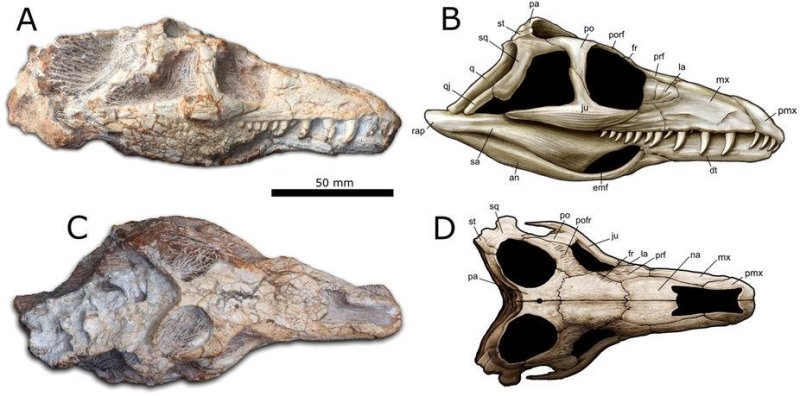 Paleontologists have unearthed the fossilized remains of a reptile that lived 250 million years ago in what's now the Brazilian state of Rio Grande do Sul.
Paleontologists have unearthed the fossilized remains of a reptile that lived 250 million years ago in what's now the Brazilian state of Rio Grande do Sul.
Researchers named the new species Teyujagua paradoxa and described it in a new paper, published this week in the journal Scientific Reports.
Teyujagua means "fierce lizard" in the language used by the Guarani ethnic group, native to southern Brazil. Paradoxa alludes to the fact that the reptile's fossils appear very different from similarly aged remains.
"Back in the lab, after slowly exposing the bones, the fossil exceeded our expectations," Felipe Pinheiro, a biologist at the Federal University of Pampa, said in a press release. "It had a combination of features never seen before, indicating the unique position of Teyujagua in the evolutionary tree of an important group of vertebrates."


 On February 26, 2025, a NASA probe called Lunar Trailblazer lifted off from Kennedy Space Center...
On February 26, 2025, a NASA probe called Lunar Trailblazer lifted off from Kennedy Space Center... She navigated segregation to become an esteemed mathematician — and today, her work helps billions of...
She navigated segregation to become an esteemed mathematician — and today, her work helps billions of... A newly discovered species of large dinosaur lived in marshy areas, hunted for fish and had...
A newly discovered species of large dinosaur lived in marshy areas, hunted for fish and had... Scientists may have discovered an explanation for a cosmic mystery uncovered by the James Webb Space...
Scientists may have discovered an explanation for a cosmic mystery uncovered by the James Webb Space...






























